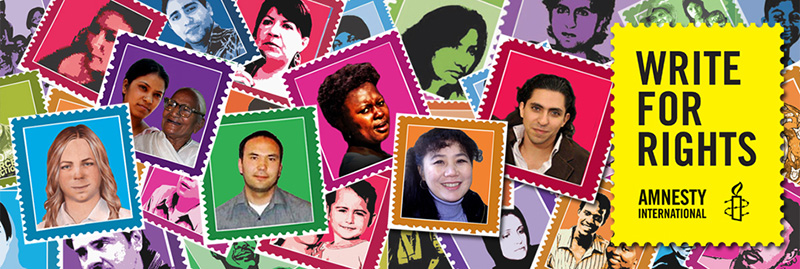Nov. 16 Jim Carrey: from Scarborough
to Hollywood: I
was reading in the Edmonton Journal and found an article about the actor
Jim Carrey. I remember watching some of
an E True Hollywood Story way back in 2001. In the show, it talked about how he and his
family struggled financially. Jim had to
work as a janitor at night and didn’t get much sleep. So he goes to school tired and sleeps in
class.
On his 16th birthday, he dropped out of school to
get a career as a stand up comedian. I
found the article on National Post and they show all these pictures of
him like when he was a teenager with one of his teachers Lucy Belvedere. He makes a goofy face.
The article was very inspirational because he overcame
adversity and it’s a triumphant story.
Here’s the whole article “Dumb and Dumber Weak (sic): Jim Carrey’s rocky
road from Scarborough to Hollywood
— ‘He was born to do it’”:
His father would gain employment in the accounting department at the Titan Wheels Factory in Scarborough and, in exchange for living in the house across the street, the Carreys would clean the building every night, from 6 p.m. into the next morning. It seems like the stuff of Dickens and certainly paints Carrey — who would become the first comic actor to earn US$20-million for a single film — as someone who grew up trying to inject levity into a grim situation that only grew worse (his mother struggled her whole life with mental health issues).
However, Rita Carrey, a year older than her brother Jim, paints the opposite picture. Now 54, she says her father was a natural comedian and even when times were at their bleakest — when it got cold in the park, when their mother was suicidal — Jim’s humour didn’t come from pain, but was second nature. Jim Carrey was funny like night is dark.
“When we were homeless, it sucked, but not for us. Mom and Dad would be the ones worrying — you’d see their cigarettes flicker when you went to take a pee at two in the morning — but Jim and I, we were fine,” says Rita, a musician performing the autobiographical Carrey On this weekend in Toronto, and a manager of Always Christmas at the Fallsview Casino in Niagara Falls. “[Jim's humour] didn’t come from a need for attention or denial or anything like that: He was born to do it.”
In three decades of making movies, Carrey has earned global
box office receipts of more than US$4-billion. Between July 1994 and November
1995, Carrey had four straight films gross more than US$100-million. That puts
him alongside Adam Sandler, Tom Cruise and Tom Hanks in the ranks of Hollywood’s
golden boys. Yet, now 52 years old, Carrey hasn’t made a live-action smash
since 2003’s Bruce Almighty, and his odd off-set behaviour and poor
film choices have overshadowed his beloved catchphrases and pratfalls.
Between 2005 and 2010, his relationship with Jenny McCarthy,
who railed against vaccinations, only added to his eccentric reputation. He’s
spoken about his depression, ADHD and, last summer, tweeted that he “cannot support that level of violence” in
the hyper-violent film Kick-Ass 2, despite presumably being aware of
its genre tendencies before signing on. All of this, including his two
divorces, aren’t much in terms of industry flame-outs — he’s more like a John
Travolta question mark than an Amanda Bynes train wreck — and the tide could
now be turning again for the elastic-faced man.
Two weekends ago, he was a charismatic host on Saturday
Night Live and he’s since been busy fostering good will before this
Friday’s opening of Dumb and Dumber To, a follow-up to the high water
mark of his comedic career. At the very least, the film will give audiences
a chance to see him do what he’s been successfully doing his whole life, or at
least until he got famous: making people laugh.
At the time, Carrey was president of the debate club, but Belvedere says his parents had no involvement with the school. “I was shocked to learn about how ill his mother was; I had no idea he was involved in that sadness,” she says, remembering him doing imitations of Elvis and Clint Eastwood and performing ventriloquism and magic tricks. “If I provided him with his first place to do a performance, it only started as a tool for me to control him and the other kids.”
Alongside his family, Carrey would hone his performance and eventually take the stage at Yuk Yuks, wearing a blue leisure suit and doing impressions. In 1977, Mark Breslin, the founder of Yuk Yuks, remembers sex, drugs and rock ‘n’ roll being comedy’s ethos — more John Belushi, less Johnny Carson — and that Carrey committed standup’s ultimate sin: He was square.
“I can only call it ‘Bad Rich Little,’ and when the audience started to boo him, I had to put the hook around his neck and give it a yank — that was the end of Jim Carrey at the club,” says Breslin, who first saw Carrey perform on his stage at 15. However, Carrey — then practising his act at midnight with his father while mopping a Scarborough factory floor — would not be deterred. Three years later, he returned.
“This time, he’s 18 and polished and the audience liked it and this guy from the Toronto Star writes: ‘I’ve seen the future of comedy and it’s Jim Carrey.’ The next night, there were lineups around the block,” Breslin says. “What we didn’t know, what nobody knew, was the guy was cleaning all night with his father, but the audience loved it and he never looked back from there.”
Carrey’s success can feel as if it happened overnight, but
he had plenty of credits before Ace Ventura: Pet Detective introduced
his talking butt to the world. He played an animator in The Duck Factory
in 1984 and had parts in Peggy Sue Got Married, The Dead Pool
and Pink Cadillac, before working with Damon Wayans on Earth Girls
Are Easy, which led to Damon’s brother Keenen Ivory Wayans to cast him on In
Living Color in 1990.
Carrey’s star would burn brightest after In Living Color, which aired for four seasons, from Ace Ventura in 1994 to The Cable Guy in 1996, then flicker through passable comedies such as Me Myself & Irene, Fun With Dick and Jane and Yes Man. In 1987, he married Melissa Womer, an actress and waitress he met at The Comedy Store, and they divorced in 1995. Lauren Holly, who he worked with on Dumb and Dumber, married him in 1996, but it only lasted one year. (She did not join Carrey and Jeff Daniels in the sequel).
After that, Carrey would take on darker roles. In 1998, he made The Truman Show, and joined a rare list of actors who’ve won a Golden Globe but then failed to get nominated for an Oscar for the same performance. Incredibly, this is a feat he would repeat the very next year, when he played Andy Kaufman in Man on the Moon. “I’m the Tom Hanks of the Golden Globes,” he said, accepting his statue.
Through it all, Carrey maintained a close relationship with his family, and though both of his parents died by the time he was 32, he stayed close with Rita, who continued to live in the Niagara Region. Rita says Jim sent her a text before hosting Saturday Night Live. “He hasn’t forgotten about his family,” she says. “All of us siblings are still close.”
This weekend, perhaps more than any other, might be a time
when Carrey will want to keep his family even closer. Can you strike comedy
gold as a young actor, venture into dramatic territory, have an odd public
persona and then rekindle the box office receipts of your youth? According to
Paul Dergarabedian, senior media analyst for Rentrak — the global movie and TV
tracker that provides the studios with box office receipts — you can.
For Rita Carrey, Jim’s career is never seriously in danger. After facing hard times that go well beyond public opinion, Rita has come to rely upon her brother’s stiff upper lip. She says it’s a family trait. “I used to drive a city bus and when people found out who I was, they’d say: ‘Why are you stuck in this dead-end job?’ You shrink to about the size of an ant,” she says. “Jim offered to help me, but what kind of example would that set for my kids? Some people might not think our upbringing was normal, but one thing we never heard was: Poor me.”











